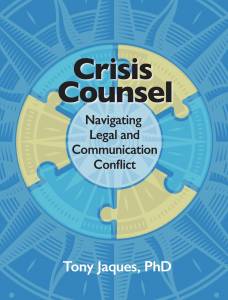What’s the Reputation Risk When Your Star Behaves Badly?
by Tony Jaques PhD, Director of Issue Outcomes Pty Ltd, for people who work in issue and crisis management, author of Crisis Counsel: Navigating Legal and Communication Conflict.
Was Jeep right to withdraw its costly Super Bowl advertisement in February after learning that singer Bruce Springsteen had been arrested months earlier for drink-driving? Or was Dior right to stick by Johnny Depp as the face of Sauvage men’s fragrance despite a British court late last year finding he violently abused his ex-wife during their relationship? What’s the Reputation Risk When Your Star Behaves Badly?
Such issue management challenges about what to do when a celebrity brand ambassador makes headlines for the wrong reasons are not new. However, the rise of #MeToo and the emergence of instant social media judgement has raised important questions about the potential risk to reputation.
Jeep said: “It’s right that we pause our Big Game commercial until the actual facts can be established.” Yet will car buyers really turn away from Jeep because a rock legend with a history of personal issues was allegedly riding his motorcycle under the influence? (The charge was later dropped). And will men buying aftershave (or women buying it for men) choose another brand because of the Depp’s tumultuous private life?
Unlike Dior, Warner Bros clearly thought Depp’s behavior was a major issue and removed him from the next movie in the Fantastic Beasts franchise (even though they had to pay his full $10 million salary for filming only one scene).
Companies need to make their own decisions, for their own reasons. But the risk to brand reputation has never been greater, nor the cost higher, and companies are increasingly under scrutiny for how they respond to celebrity misbehavior, even when it is just an allegation.
Take Hollywood actor Kevin Spacey, accused of predatory sexual behavior. Netflix immediately dumped him from their highly acclaimed series House of Cards, and scrapped a biopic about Gore Vidal which was already in post-production. The decision to sever all ties with their former star cost $39 million.
At the same time, Director Ridley Scott cut Spacey from his already completed movie All the Money in the World and replaced him with Christopher Plummer portraying J. Paul Getty. The reshoot reportedly added $10 million to the budget but Scott said: “Whatever you do in private is not my business. It only becomes my business if it infects the business that I’m in. Then it’s my duty to do something about it.”
The same reputational risk applies when global sports stars fall from grace. After tennis player Maria Sharapova failed a drug test and golf star Tiger Woods failed his marriage vows, some sponsors walked and some stayed. And some publicly declared they were suspending support, then later resumed sponsorship “after considering the full facts.”
Or consider how two of Cricket Australia’s highest profile commercial partners responded when three players were banned following the “sandpapergate” cheating scandal. While Qantas CEO Alan Joyce urged the cricket authorities to take appropriate action, and said the airline was “nowhere near” withdrawing sponsorship, funds manager Magellan tore up its three year contract as naming rights sponsor – said to be worth $20 million – after only eight months.
In the case of Depp, Sharapova, Woods, Cricket Australia and others, the question is, which was the right decision? Or were both responses right for different reasons?
Regardless, there are some important principles to protect reputation in such celebrity brand crises.
- Every organization needs to weigh up its own risks.
- People respond differently, so don’t just jump on the band wagon.
- Do some real analysis, not a knee-jerk response.
- Recognize that – despite the noise – many of your stakeholders probably don’t much care either way.
- And never forget, it’s a business decision.
A Parting Thought
When you face a crisis, you know who your true friends are.
– Earvin “Magic” Johnson
Learn more about Reputation Risk in Tony Jaques’ new book, Crisis Counsel: Navigating Legal and Communication Conflict.

